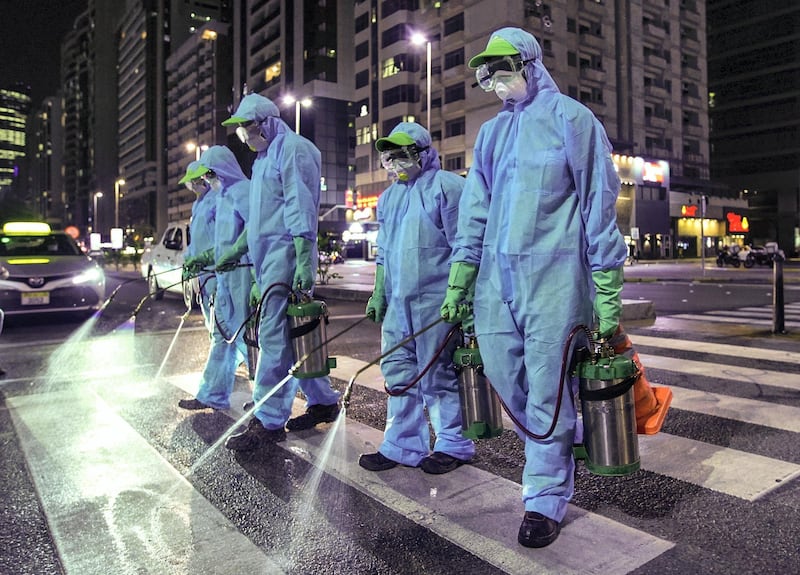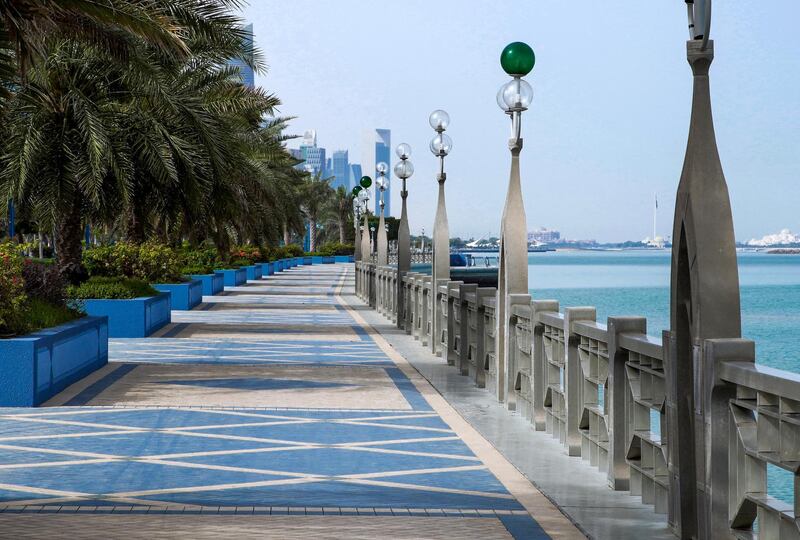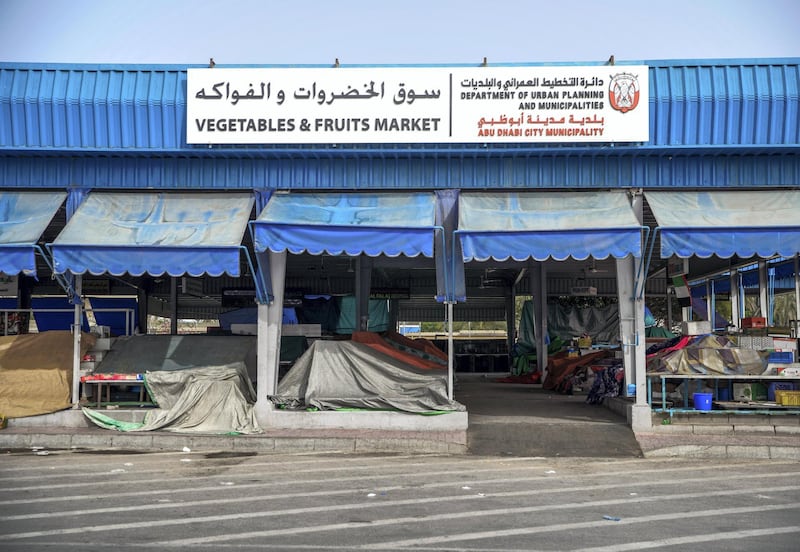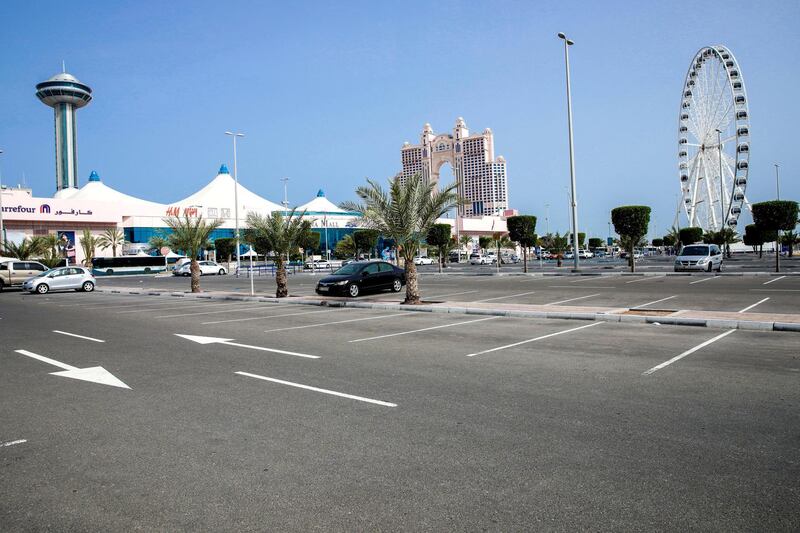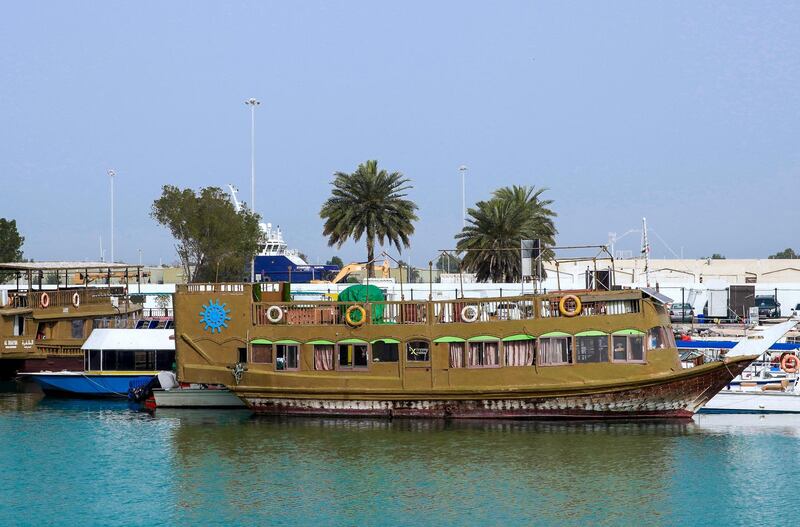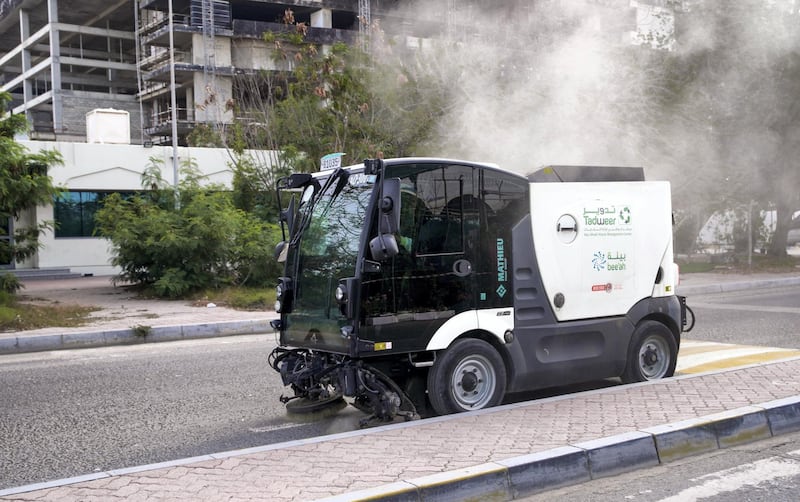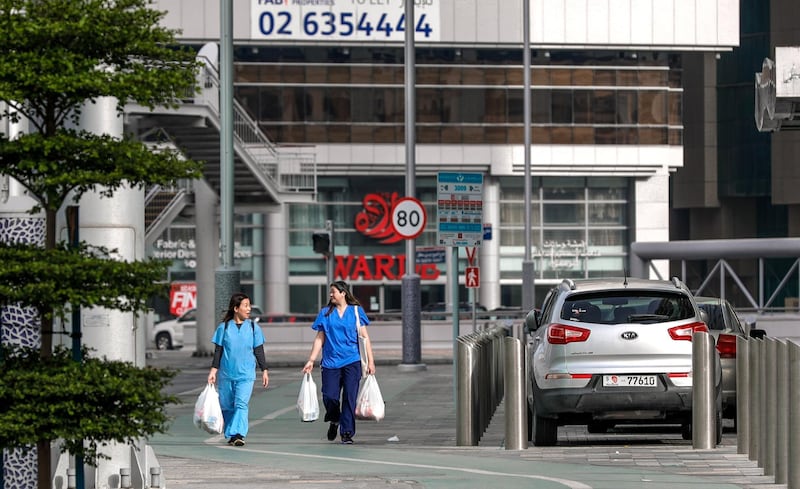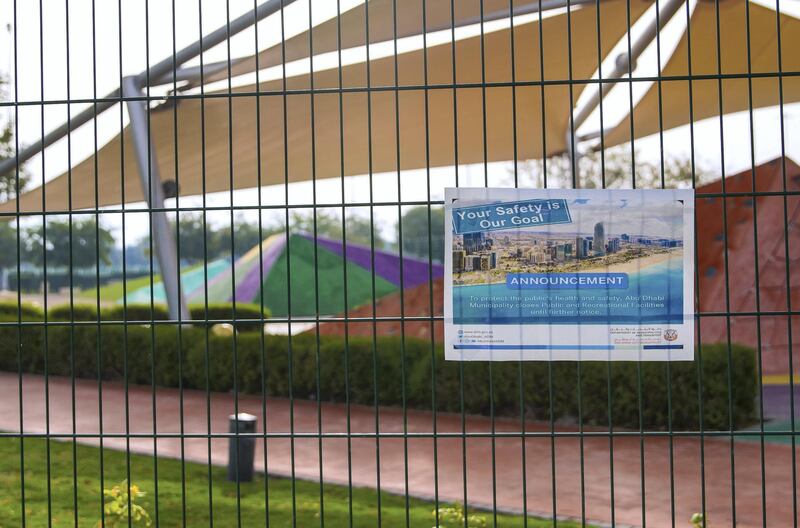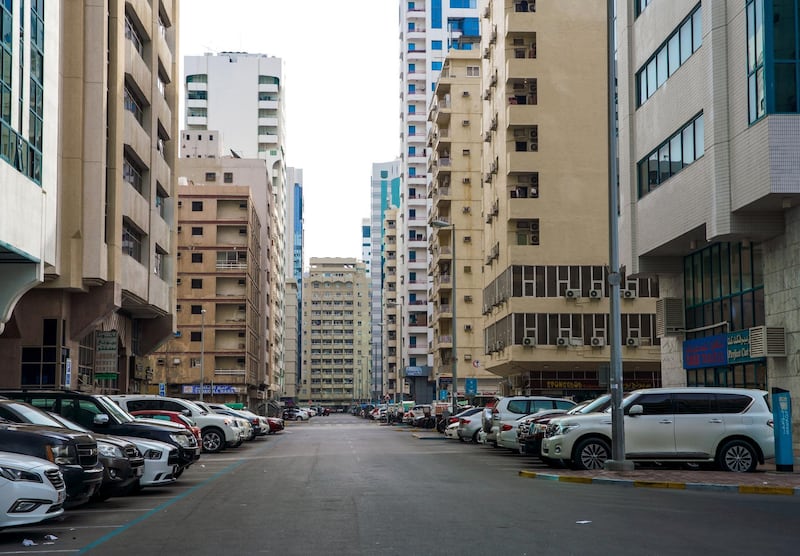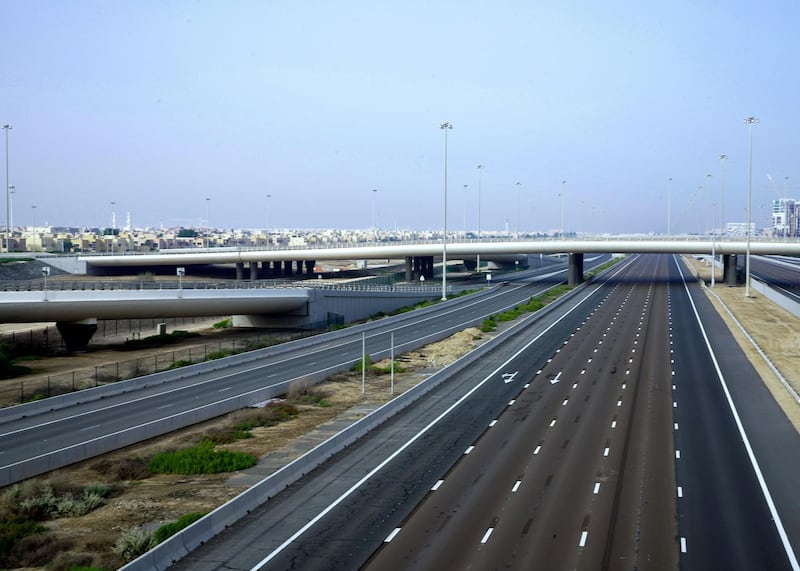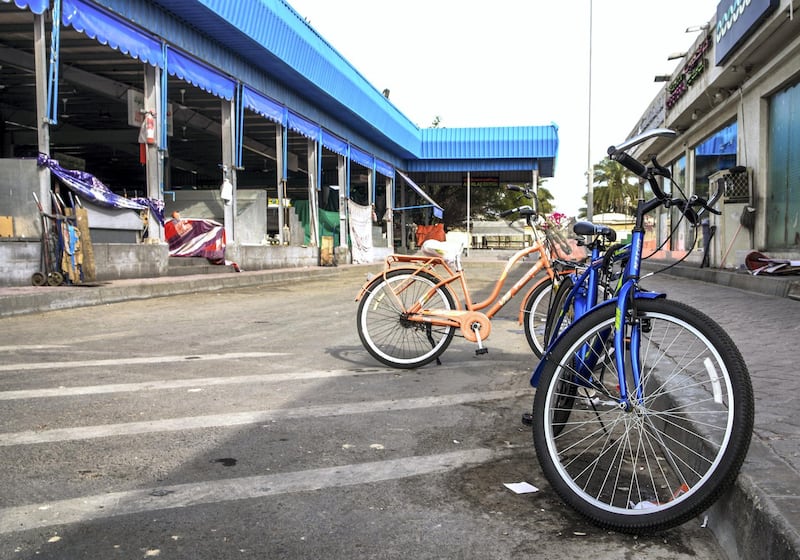Disinfectants used to spray roads across the country during this weekend’s sterilisation programme are non-toxic and safe for humans and animals, officials have said.
The country declared a nationwide cleaning campaign that started on March 26, in an effort to curb the spread of the virus.
The National Sterilisation Programme, which was launched by the Ministry of Health and Prevention and the Ministry of Interior, will continue between 8pm and 6am, until April 4.
The Emirates asked everyone to stay indoors during the campaign.
More than a thousand sanitisation workers sprayed streets, bus stops and footbridges with disinfectant on Friday night in Abu Dhabi.
The 750 heavy and handheld machinery used in the drive sprayed environmental friendly liquids “that hurt no one”, said officials at Tadweer, Abu Dhabi's waste management company.
The company is in charge of running the sanitisation programme in the emirate.
"Those sanitisers are environment friendly and have very low concentration [of chemicals]," said Dr Salem Al Kaabi, general manager of Tadweer.
The chemicals used are also safe for pets, officials said.
“They have no effect on humans or cats,” said Mohamed AlMarzouqi, director of Tadweer’s Pest Control Projects Department.
“Those substances have been carefully picked to not impose any side effects, and they are even recommended for use at foodstuff stores and are approved by EPA [The Environmental Protection Agency].
“So they are very safe.”
Sanitisation workers are to disinfect "street furniture, waiting rooms at bus stops, benches, pedestrian tunnels and bridges, and all areas that are heavily populated," Dr Al Kaabi said.
The programme is intended to cover all streets and public areas in the country.
"We are not using drones or robots. Next week we will introduce new technologies and methods that would reduce the number of workers," Dr Al Kaabi said.
“We are conducting deep-cleaning missions every day, but during the programme we are intensifying the efforts, and we have other parties working with us.”
Around 50 volunteers from Sanid, an emergency response volunteering programme, assisted in the campaign by coordinating between officials and workers on the ground.
#بلدية_مدينة_أبوظبي تعرب عن شكرها أفراد المجتمع لمساندتهم لإعمالها والتزامهم في بيوتهم خلال عمليات التعقيم لمدينة أبوظبي وضواحيها وبالتعاون مع مركز أبوظبي لادارة النفايات - تدوير.
— بلدية مدينة أبوظبي (@AbuDhabi_ADM) March 27, 2020
.
.@admediaoffice @Tadweer_cwm @AbuDhabiDMT #خلك_في_البيت #ملتزمون_يا_وطن #برنامج_التعقيم_الوطني pic.twitter.com/CjaeSCDHjw
“We help pass instructions to the workers by telling them where to go and with other logistics,” said Masoud Al Housani, a team leader at Sanid.
Abu Dhabi Municipality thanked the public for "committing to staying at home" while the sterilisation operations took place.
During the sterilisation drive, traffic will be restricted daily from 8pm to 6am.
Public transport operations – such as taxis on specific routes to hospitals – were suspended from the operation.
Covid-19 disinfection work in the UAE
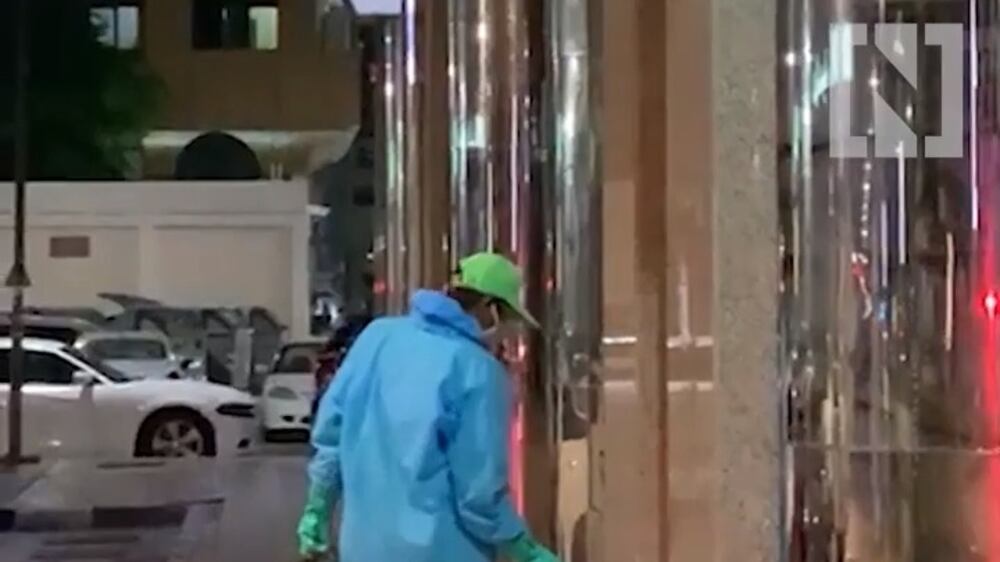
Dubai's Crisis and Disaster Management Team launched a website, www.move.gov.ae, where people in Dubai can request permission to leave home during the sterilisation period, between 8pm and 6am. Residents of Abu Dhabi must apply for clearance to go out via www.adpolice.gov.ae.
Those working in critical sectors such as energy, communications, healthcare, national security, electricity and water, airport and immigration, banking, mass media and construction are allowed to venture out without registering on the website.
However, they must carry their Emirates ID and work identification cards for verification.
People who break the law will be subject to legal action that includes fines and imprisonment.
